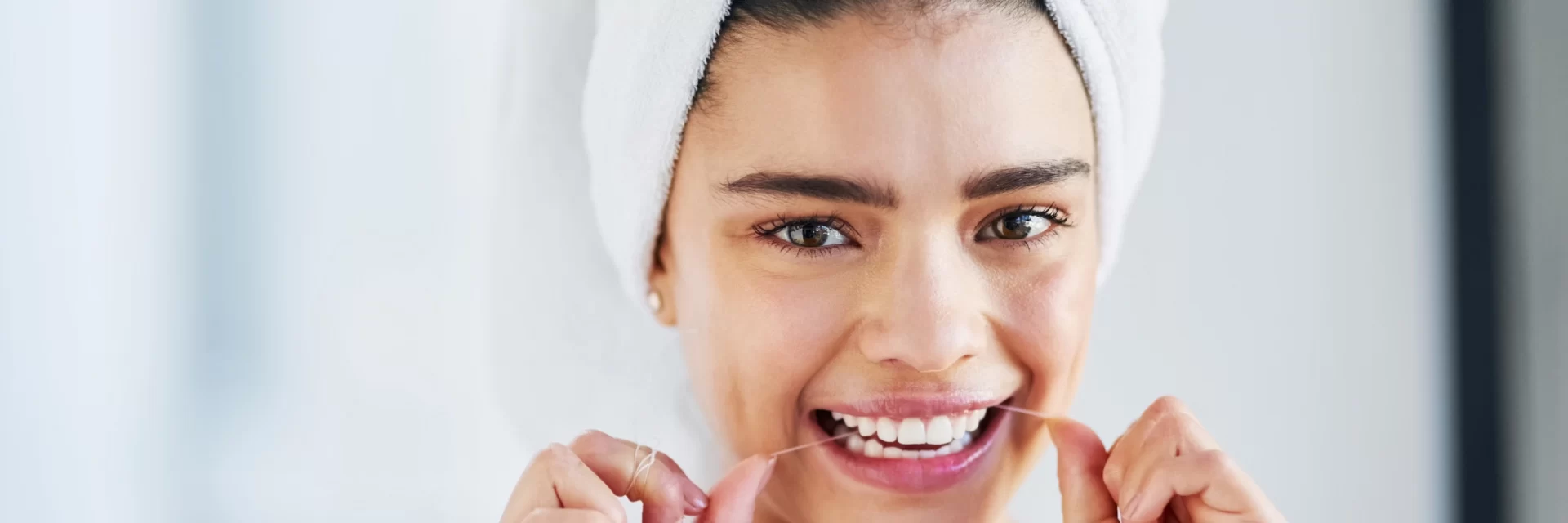
15 Tips to Boost Your Oral Hygiene Routine
Level up your oral hygiene routine with these simple tips for a healthy, radiant smile.
You’re snug on your couch, watching a good movie when you suddenly see the movie star smiling with their perfectly aligned, white teeth. Is this what your teeth should look like?
This thought occurs to all of us at least once in our lives. The good news is that oral health is easier to attain than expected. That’s why we’ve put together some tips for your oral hygiene routine to start your day off feeling fresh.
Why is a Good Oral Hygiene Routine Important
Vanity aside, there are many reasons why we should be worried about our oral health.

Bad breath, tooth decay, and gum disease all result from poor oral hygiene routines. On top of that, oral cancer and diabetes can occur, among other more serious conditions.
It’s not only about having a good oral hygiene routine, but also about other habits we have. Maintaining a healthy diet, for example, rich in fruits and vegetables, can help us reduce dental problems.
How to Stay Consistent with Your Oral Hygiene Routine
We know that when going about our day, brushing our teeth might seem like a boring task. However, you shouldn’t skip your routine for the sake of some extra minutes refreshing your Instagram or scrolling through TikTok.
If you tend to be a very organized personality and follow a strict schedule, set an alarm before going to work and at bedtime. In addition, double-check that you aren’t running out of toothpaste, floss, mouthwash, and other important items. Keep all these products in your bathroom, where you can easily spot them.
Brush Your Teeth
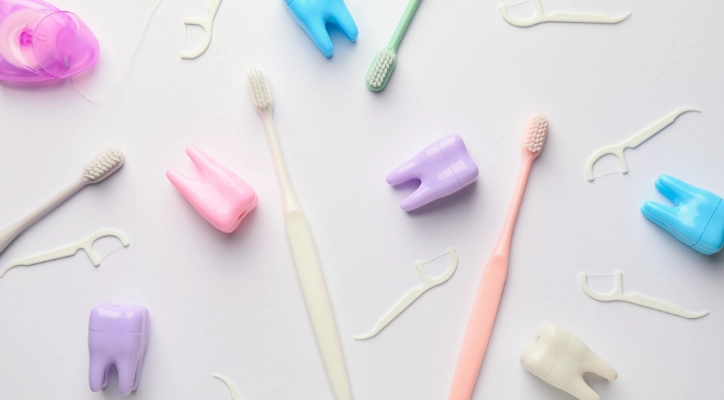
The American Dental Association suggests that brushing your teeth twice a day for two minutes is the ideal way to keep plaque at bay. Don’t be too harsh on your teeth, though. This can damage the enamel, a layer that protects your teeth.
Use Dental Floss
You can either use floss before or after brushing. What matters is to floss your teeth at least once a day, gently, to make sure you remove excess debris and plaque that your brush couldn’t remove.
If you want to level up your flossing game, use a water flosser that will help you flush out plaque and debris with a small water jet.
Clean Your Tongue

Bacteria and food particles can remain on your tongue after brushing. For that reason, cleaning your tongue with your brush, a piece of floss, or a tongue scraper will ensure you have removed almost all bacteria from your mouth. Rinse once you are done.
15 Tips to Boost Your Oral Hygiene Routine
Choose the Right Toothbrush
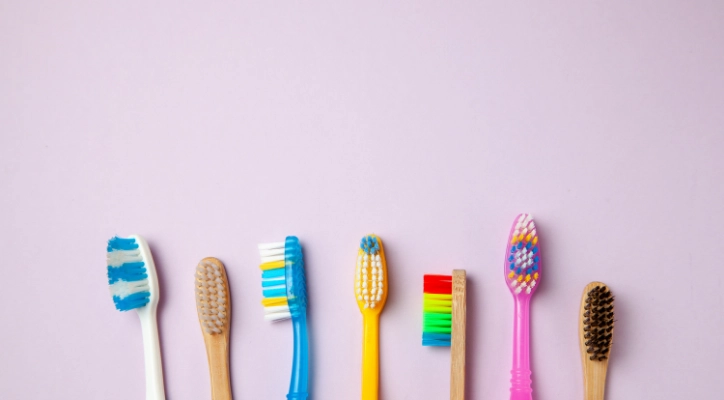
Use a soft-bristled brush to maintain the health of your teeth and gums. While firm-bristled brushes can leave your teeth feeling clean, they are very rough on the teeth and gums, creating small bruises that can be damaging over time.
Use the Right Toothbrushing Technique
Tilt your brush at a 45-degree angle and brush in short strokes. The brush should form the angle against the gum line to make sure you’re removing plaque that has accumulated near your gums.
When to Use Mouthwash
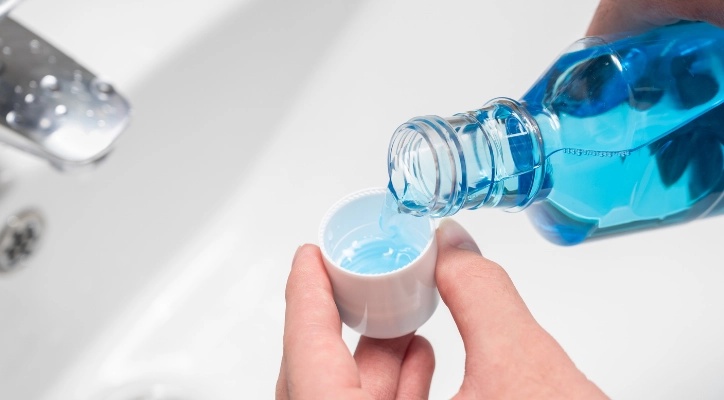
While it isn’t necessary to use a mouthwash, certain formulas can help you keep your gums healthy and prevent cavities. You can also opt for a simple mouthwash or spray that keeps your breath fresh.
Brush Your Teeth in the Morning
The infamous morning breath is a result of bacteria building in your mouth overnight. While you rest, your mouth has a temperature that is ideal for bacteria to spread, leading to plaque. Brushing your teeth in the morning will help you remove plaque that builds up while sleeping.
Don’t Overdo It
As we previously mentioned, brushing your teeth twice a day is enough to maintain a healthy mouth. You can opt to use water or a gentle mouthwash anytime you feel you need to cleanse your mouth. Swish vigorously for about 30 to 40 seconds.
Use Toothpaste with Fluoride
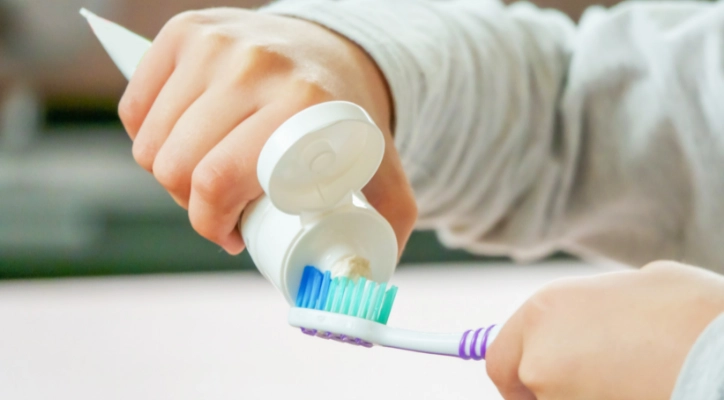
While several kinds of toothpaste will promise you a bright smile, the first element to look out for is fluoride. This active ingredient is ideal for preventing cavities and tooth decay.
Change Your Toothbrush
Make sure you use a new toothbrush every 3 or 4 months, especially if the bristles are frayed and flat. To preserve it better, allow it to dry in a clean space. Clean your toothbrush container once in a while to prevent germs from forming on your toothbrush.
Visit Your Dentist
Go to your dentist for regular check-ups to make sure your mouth is healthy and doesn’t have abnormalities. Even twice a year is enough to keep track of your oral health.
Hydrate

A healthy saliva flow will create enzymes that break down the acids that deteriorate your teeth. Make sure you bring a bottle of water with you everywhere to keep your mouth moist and healthy.
Avoid Sugary Snacks
We love a rich chocolate bar as much as anyone. Unfortunately, foods containing high sugar and starches produce acids that generate decay. Try to brush your teeth gently after eating foods like cookies, candies, or ice cream.
Eat Fibrous Foods
Celery, apples, and carrots are some of the best foods you can eat to scrub your teeth surface and remove plaque.
Pay Attention to Your Mouth at Home
Consistently scan your mouth for any signs of deterioration and contact your dentist in case you notice something strange.
Avoid Smoking

Smoking can generate gum disease and give you bad breath. Moreover, because smoking harms the immune system, your body will have difficulty healing your tissues, including the ones in your mouth.
Don’t Rinse
Spitting out our toothpaste and then rinsing is a common practice. However, by doing this, we are washing away the fluoride. Instead, just spit out the excess toothpaste and avoid rinsing. This way, fluoride will stay in your mouth and work to protect your teeth for longer.
Avoid DIY Teeth Whitening
While it may be tempting to use hydrogen peroxide and baking soda to give your teeth a whiter appearance instantly, it’s dangerous to do such things.
Instead, book an appointment to whiten your teeth with a dentist. This way, you ensure that your teeth are safe.
Taking care of your oral health is key to a healthier body. If you’re trying to implement more self-care routines in your life, check out our dermatologist skincare routine to take your healthy lifestyle to the next level.
